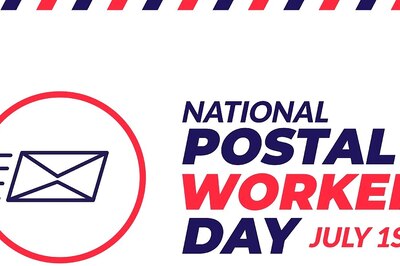
views
Washington: The US Food and Drug Administration (FDA) have approved a new cancer vaccine that might turn out as a "small step for man and a giant step for mankind."
A University of Georgetown researcher, Dr Richard Schlegel developed the drug.
The drug is known as Gardasil and it can eliminate most new cases of cervical cancer worldwide.
It works by blocking four strains of human papillomaviruses (HPV), including two that give rise to nearly 75 per cent of cervical cancer cases.
It also blocks two other strains that cause about 50 per cent of genital warts.
Schlegel began working on the project since the late 1980’s, studying the molecular biology of the human papillomavirus (HPV), the precursor to most cervical cancers.
He focused his study on the millions of people worldwide infected with the sexually transmitted disease, particularly in the developing countries where HPV affected as many as 400,000 women annually.
"We realized these deaths were largely preventable. That's really all the motivation we needed," he said, adding it was a very gratifying experience to see their efforts bear fruit.
"It's a researcher's dream to see something that started as a very cerebral idea in the laboratory to advance through animal and clinical trials, gain FDA approval and ultimately have a major global impact. It's highly unlikely but extremely gratifying to see it through so far," he added.
Prof Shin-je Ghim, who was working along with Schlegel and Prof A Bennett Jenson, said that once the three researchers began working together, they knew they were on to something.
"Progress was slow at first, but we sensed it was coming. No one really believed in a vaccine's ability to prevent cancer," Ghin added.
"At the time, Georgetown had one of the strongest HPV research programs of any institution in the country and you couldn't have asked for a more capable team of people," Jenson also said.
"We were the right group of people, at the right time, with the right stars shining in our direction," Jensen added.




















Comments
0 comment